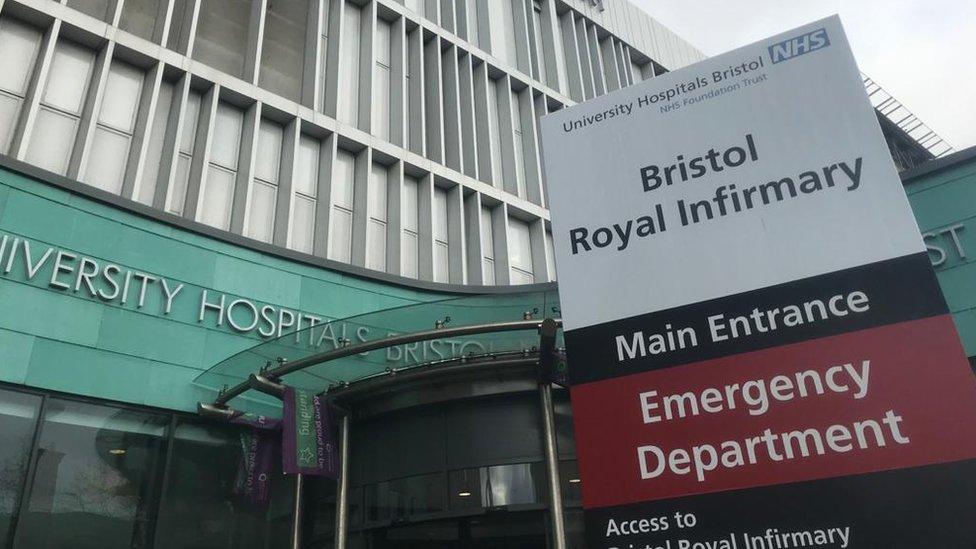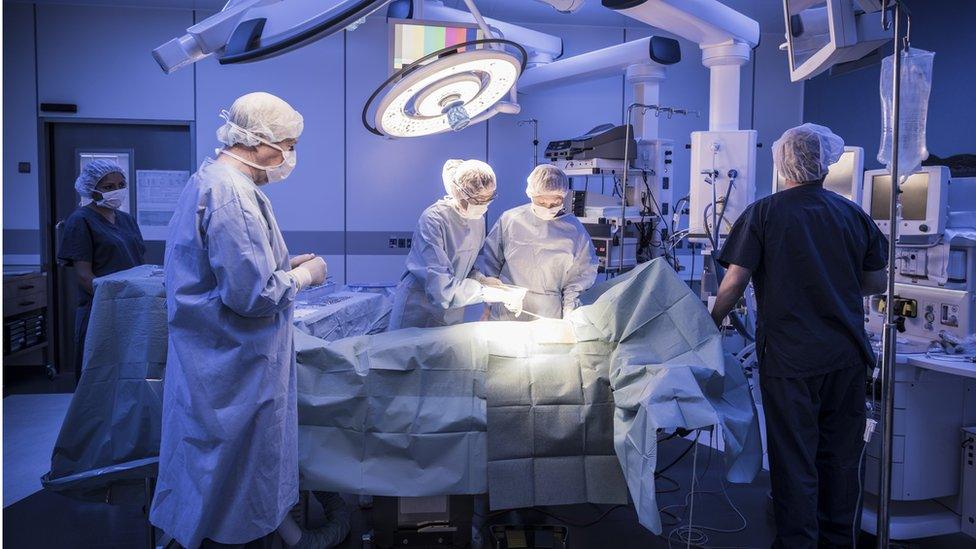Bristol Royal Infirmary patient infected during heart surgery, inquest finds
- Published

Donald Gore contracted mycobacterium chimaera in 2016 but was not diagnosed with the infection until 2019
A family whose relative died from a rare infection contracted during open-heart surgery said it wanted warnings placed on patient records in future.
Donald Gore contracted the infection from a heater-cooler unit used at Bristol Royal Infirmary (BRI) in 2016 but was not diagnosed until 2019.
His was one of 33 deaths from 49 known UK cases, the family's solicitor said.
On 17 June a coroner ruled Mr Gore's death was contributed to by neglect. The trust said changes had been made.
Professor Stuart Walker, the trust's medical director, offered Mr Gore's family their condolences and said the trust acknowledged the coroner's findings.
He added: "At the time of Mr Gore's death, the trust undertook a comprehensive investigation and implemented a number of actions, with significant changes taking place to strengthen the awareness of the risk of this rare infection."
'Warning alert'
Following a five-day inquest family solicitor Paul Balen said: "Coroners are being repeatedly told that doctors were unaware of this rare illness.
"If nothing else this inquest demonstrates the need for all patients who had undergone open heart surgery after 2005 at hospitals using LivaNova heater-cooler units having a warning alert placed on their patient records so doctors are aware of the issue.
"If further lives can be saved as a result the exercise would be worthwhile."
Mr Gore, a retired engineer from Bristol, died on 24 August 2019 aged 74, almost three years after the surgery and two years since he first showed signs of the infection.
Global issue
The heater cooler units are used to control the temperature of the patients' blood while their hearts are stopped during the operation while their blood is circulated outside of the body.
Avon assistant coroner Dr Simon Fox found there was a delay in diagnosing Mr Gore until June 2019, by which time the infection had spread throughout his body.
By then it was too late to begin treatment and Mr Gore died two months later, Mr Balen said.
Dr Fox recorded that Mr Gore had died of mycobacterium chimaera contracted from the aerosol produced from the infected heater-cooler unit used during heart-valve surgery.
The coroner recorded the death had been contributed to by neglect because:
In March 2017, the hospital did not send Mr Gore the standard letter to patients advising him of the risk
The GP he first presented to with symptoms did not read the alert sent by Public Health England to doctors, or refer to the risk when referring Mr Gore to hospital
Hospital doctors, in particular those specialising in infectious disease, microbiology and cardiology, were unaware of the risk, and when they did order tests they were delayed
During the 21 months of delay, Mr Gore was misdiagnosed with sarcoidosis for which he was treated with long term steroids, which may have accelerated his infection or made it more severe
The global problem was first identified to Public Health England in 2014 after a hospital in Switzerland reported that a number of its patients had contracted the rare mycobacterium chimaera.
More cases have since emerged throughout the world.
The inquest heard evidence from doctors, Public Health England and LivaNova, the manufacturers of the infected heater-cooler unit.
LivaNova redesigned its heater cooler units and no cases have been reported from operations conducted after 2017, the family's law firm said.

Follow BBC West on Facebook, external, Twitter, external and Instagram, external. Send your story ideas to: bristol@bbc.co.uk , external
- Published14 April 2017
